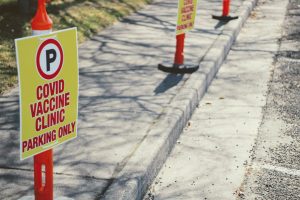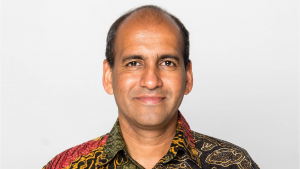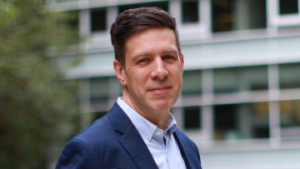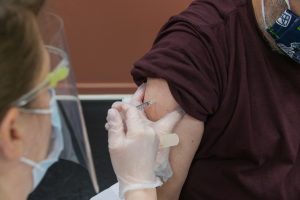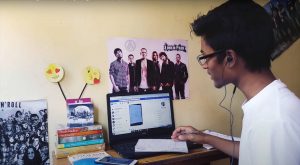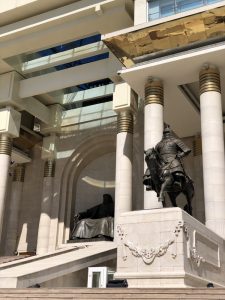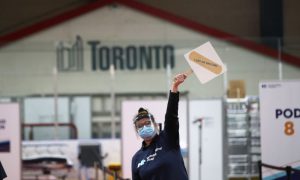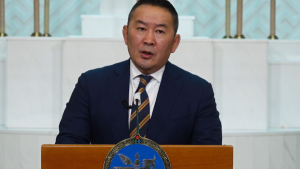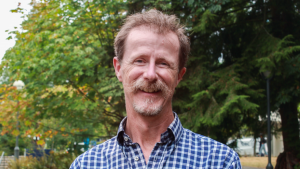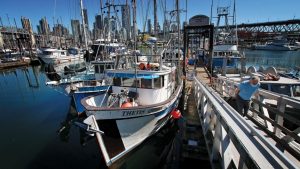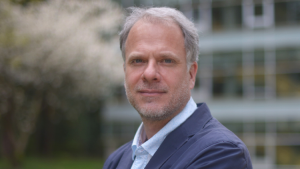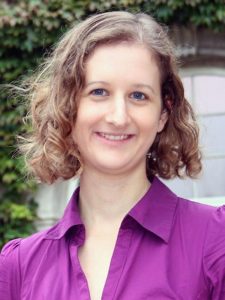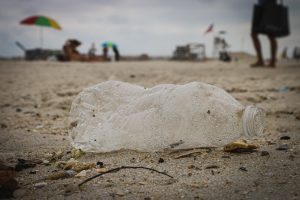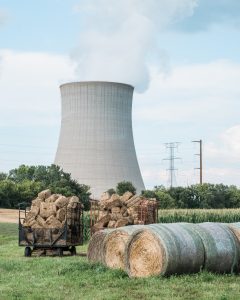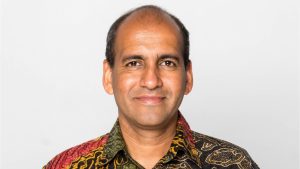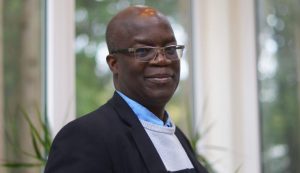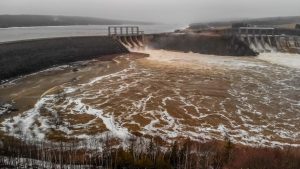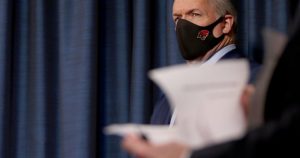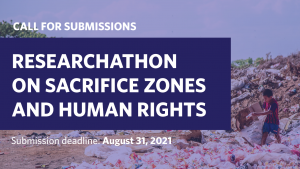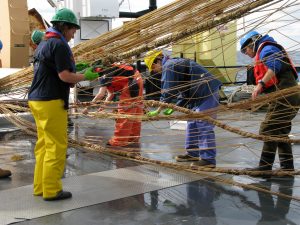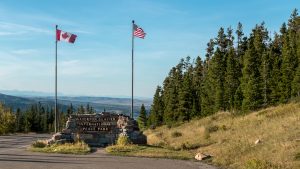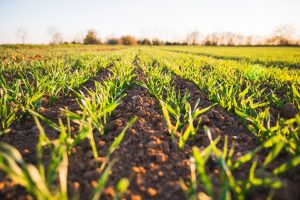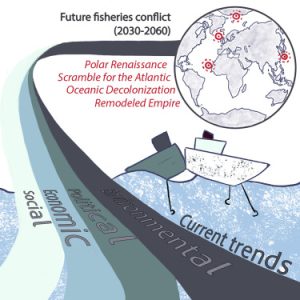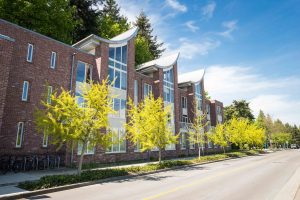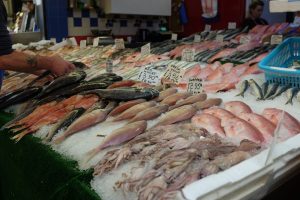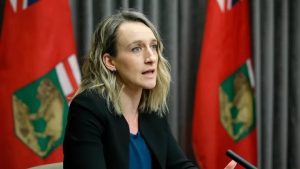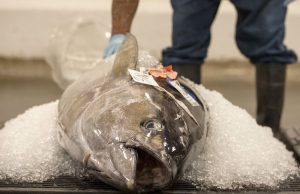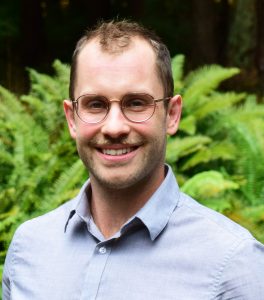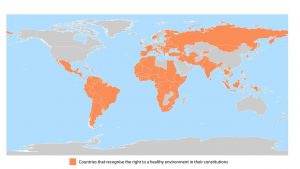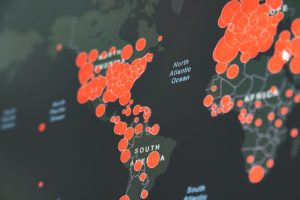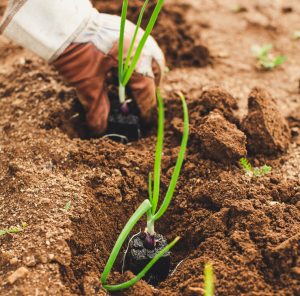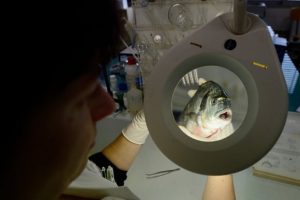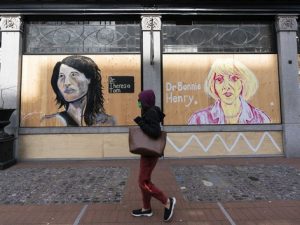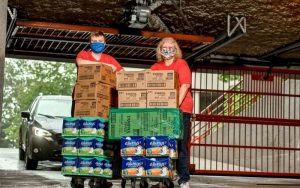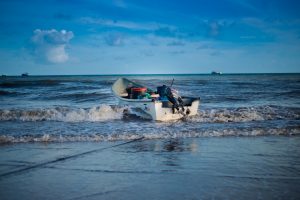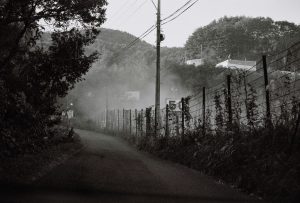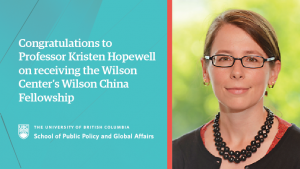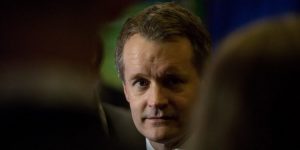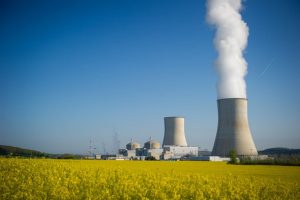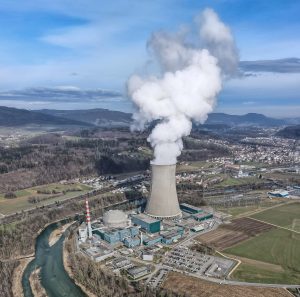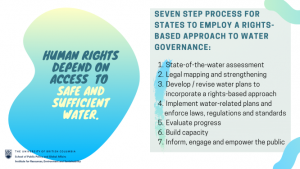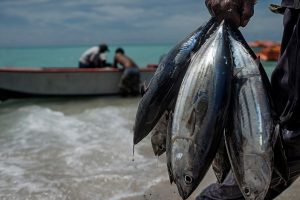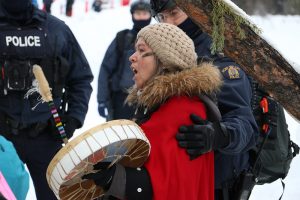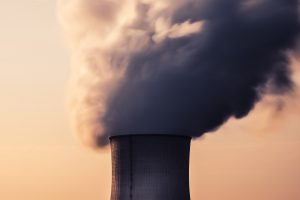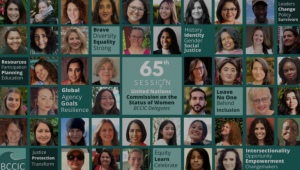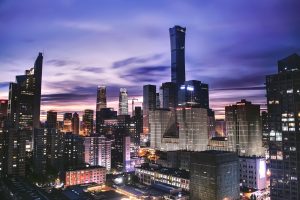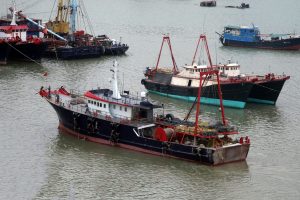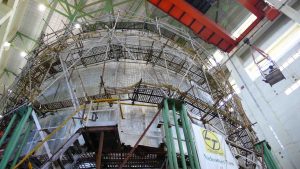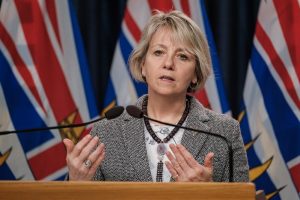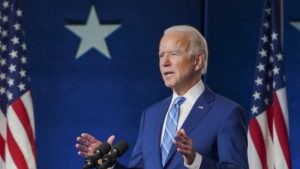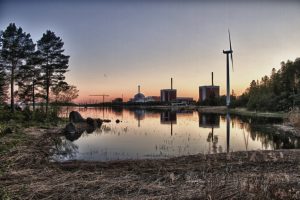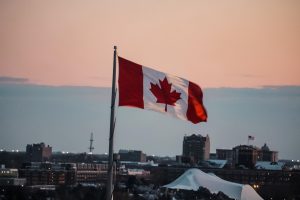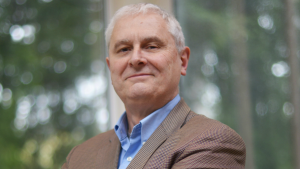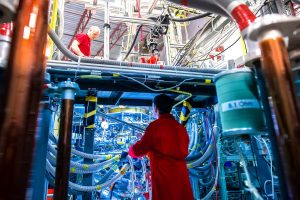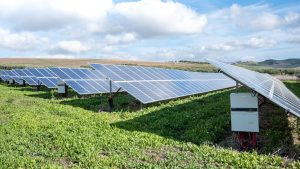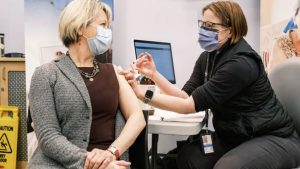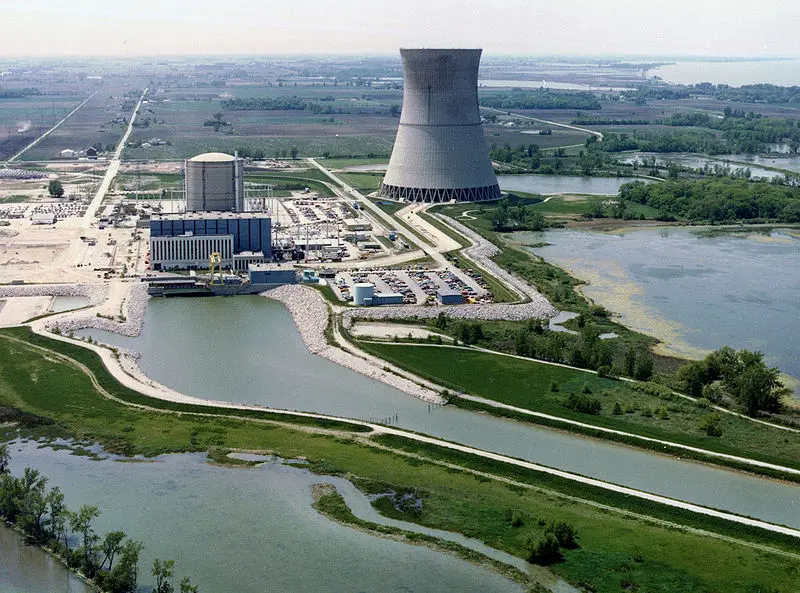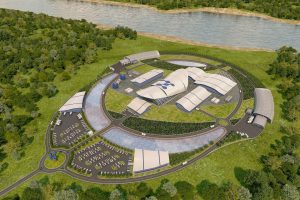B.C.’s ‘New and Innovative’ Pop-up Vaccine Clinics Halted amid Backlash and Mea Culpas
After an incident involving pop-up vaccine clinics that left hundreds of people without vaccines, B.C. health authorities are facing backlash. Professor Heidi Tworek (SPPGA; UBC Department of History) comments on the province’s bungled communications strategy.
Le Canada Mise sur le Nucléaire pour Réduire les GES
To meet its goal of climate neutrality by 2050, Canada has invested more than $75 million into the development of small modular reactors (SMRs). Professor Ramana weighs in on the conversation (French).
The Latest on the Cullen Commission
It’s been a week of high-profile appearances by senior BC politicians at the Cullen Commission that’s looking into money laundering in the province. We hear from Professor Gerald Baier (CSDI Acting Director; Political Science) on the proceedings.
She Was Nervous to Get Vaccinated, but Winnipeg Woman Is Now Encouraging Others to Get Their Shot
After a woman shares why she got vaccinated despite her initial hesitancy, Professor Heidi Tworek (SPPGA & UBC Department of History) emphasizes the importance of showing people that vaccinations are about protecting the community as a whole.
Learning During the Pandemic in Nepal
With limited access to reliable internet and devices in Nepal, MPPGA students Boyd Hayes, Nabila Farid, and Riya Sirkhell, and UBC Research Assistant Ujjwal Neupane discuss programs that teach parents about technologies for remote learning.
Doug Ford Apologizes
After Doug Ford’s apology and some of Ontario’s new restrictions rolled back, Professor Heidi Tworek (SPPGA & UBC Department of History) discusses how the provincial government can change its approach to pandemic communications. (13:10 mark)
What’s Gone Wrong in Canada
“A year ago, Justin Giovannetti left Canada to join his fiancée (and The Spinoff) in New Zealand. Today, his home country is confronting another debilitating wave of Covid-19.” He speaks to Professor Heidi Tworek (SPPGA; UBC Department of History) about the lack of a national response from Canada.
Former B.C. Premier Christy Clark Says Government Didn’t Alert Her to Money-laundering Spike until 2015
Christy Clark will testify Tuesday at the official inquiry “investigating the causes and impact of B.C.’s money laundering problem over the past decade”. Professor Gerald Baier (CSDI Acting Director; Political Science) was featured in Yahoo News.
Grappling with Parliament Limiting His Powers, Mongolian President Moves to Dissolve Ruling Party
“Political shenanigans ahead of a June presidential election in Mongolia have taken a new turn,” say SPPGA Professor Julian Dierkes, Bulgan Batdorj and Marissa Smith. Read more on how said political maneuvers could threaten Mongolian democracy.
‘War Means Blood’: Can a Treaty Stop Latin American Activists Being Killed?
A treaty aiming to protect activists in Latin America could be a “life-saving game changer” according to Professor David Boyd (SPPGA; IRES; UN Special Rapporteur on human rights and the environment).
De-Politicising Seawater Desalination: Environmental Impact Assessments in the Atacama Mining Region, Chile
New research from Professor Nadja Kunz (SPPGA; NBK Institute of Mining Engineering) and others identifies how EIAs, tools meant to assess and mitigate negative socio-environmental outcomes, can be utilized in ways that enable them, such as in the case with desalinization in Chile.
Petits Réacteurs Nucléaires: Que Fera-t-On des Déchets
SPPGA Director Allison Macfarlane speaks on the feasibility of small modular nuclear reactors and waste management in wake of New Brunswick’s plan for deployment of SMRs (Article in French).
Liu Scholar Tebogo Thandie Leepile Wins First Place in UBC Three Minute Thesis Competition
Congratulations to Liu Scholar Tebogo Thandie Leepile, the first place winner of this year’s UBC Three Minute Thesis competition #UBC3MT for her thesis.
Japan: UN Experts ‘Deeply Disappointed’ by Decision to Discharge Fukushima Water
Three independent UN human rights experts, including Professor David Boyd (SPPGA; IRES) expressed deep regret over Japan’s decision to discharge potentially radioactive Fukushima nuclear plant water into the ocean, impacting millions across the Pacific.
‘We Face Very Tough Challenges.’ How Mongolia Typifies the Problems Posed to Small Countries by China’s Rise
Former President Elbegdorj has turned into one of China’s harshest critics in no small part due to Beijing’s recent efforts to curb Mongolian language and culture in Inner Mongolia. SPPGA Professor Julian Dierkes comments on Mongolia’s economic entanglement with China.
Why We Need to Change the Narrative on Outdoor Transmission
“From a biological standpoint, the ventilation in open outdoor spaces is incredibly potent, and leads to rapid dispersion of respiratory particles associated with COVID transmission,” says Professor Heidi Tworek (SPPGA; History) in a co-written story about outdoor activity during the pandemic.
Taiwan’s COVID-19 and Pandemic Experience: What are the Lessons for Canada?
Professor Heidi Tworek (SPPGA; History) provides a stirring account of how Taiwan was able to adopt a unique communication strategy to swiftly tackle the pandemic and breaks down six lessons Canada could learn from.
Former NRC Chair Questions Economic Feasibility of New Nuclear in US
“Without further aid from Congress and the White House, the prospects for the U.S. nuclear industry will dwindle in the face of cheaper resources that are getting built faster than new nuclear generators,” says SPPGA Director Allison Macfarlane.
Participatory Simulation: Reflections on the 2021 NASPAA – Batten Simulation Competition
MPPGA student Anoushka Chandarana recently competed in the 2021 NASPAA – Batten Simulation Competition. Learn more about her experiences in her reflection.
Government Response to COVID-19 Surge. Single-Use Plastic Pollution
On the BC Today Podcast, Professor Rashid Sumaila (SPPGA & UBC Institute for the Oceans and Fisheries) discusses the benefits and minimal costs of banning single use plastics, and how it should be implemented at the municipal and national levels.
Mankala Chronicles: Nuclear Energy Financing and Cooperative Corporate Form in Finland
Drawing on 32 months of interview-based ethnographic fieldwork, Postdoctoral Fellow Vincent Ialenti examines Finland’s “mankala” nuclear energy companies through the lens of anthropological theories of corporate form.
More Nuclear Reactors (SMRs): A Bad Investment for New Brunswick
“One cannot have both: nuclear power and sustainable renewable energy.” Professor Ramana and co-authors makes a case against SMRs for New Brunswick.
China’s Gone Fishing
China is the world’s largest exporter of seafood – and its largest consumer. After decades of overfishing, the nation is now looking for seafood in open and contested waters. Professor Rashid Sumaila (SPPGA & UBC Oceans) has more.
B.C. Premier Backtracks on Blaming Young People for Rise in COVID-19 Cases
Professor Heidi Tworek (SPPGA; UBC Department of History) cautions that placing the blame for the rise in COVID cases on young people could discourage them from getting tested and affect the ability to fight the pandemic in the long-term.
David Boyd, UN Special Rapporteur on Human Rights and the Environment, co-launches Researchathon on Sacrifice Zones and Human Rights
Join this year’s researchathon, hosted by Professor David Boyd (SPPGA; IRES) and Marcos A Orellana, which investigates “sacrifice zones” – places of severe pollution or environmental degradation where profits have been prioritized over people and public interests.
Why Small Modular Nuclear Reactors Won’t Help Counter the Climate Crisis
SPPGA Professor Ramana and others analyze the economies of scale, mass manufacturing, and the track record of small modular nuclear reactors to determine whether SMRs will help counter the climate crisis.
Strategic Narratives in Global Trade Politics: American Hegemony, Free Trade, and the Hidden Hand of the State
Professor Kristen Hopewell’s research on global trade politics suggests that the dichotomy between American “free-market capitalism” and “state capitalism” is not so clear cut – and tied to a strategic narrative deployed for legitimizing US economic interest.
Dr. Dierkes Elected as President of the Western Canadian Deans of Graduate Studies
SPPGA Professor Julian Dierkes has been elected as the president of the Western Canadian Deans of Graduate Studies, an organization focused on promoting the effective pursuit of graduate studies at Western Canadian Universities.
Seafood Trawl Fishing May Release as Much Carbon as Air Travel
In response to a study that suggests that seafloor trawl fishing releases as much carbon as air travel, Professor Rashid Sumaila (SPPGA & Institute for the Oceans and Fisheries) adds that we are putting too much pressure on our natural systems.
Connecting Peaces: TBCAS and the Integration of International, Social, and Ecological Peace
Transboundary Conservation Areas (TBCAs) have been heralded for their potential to foster peaceful relations, biodiversity conservation, and sustainable development, yet critics point out their failures. Professor Philippe Le Billon (SPPGA; Geography) suggests that TBCAs’ failings result in part from a lack of connection between three intertwined types of peace.
Exploring the Future of Fishery Conflict Through Narrative Scenarios
Disruptive changes in our global ocean and fisheries have sparked warnings of an increase in fishery conflicts. Professor Philippe Le Billon (SPPGA; Geography) co-authors this article, considers how multiple causal factors can drive conflict by using a scenario approach.
Joint Statement against Anti-Asian Racism and Violence
The UBC School of Public Policy and Global Affairs and its Institute of Asian Research strongly condemn the recent tragic violence against the Asian community in Georgia and the rise in anti-Asian racism in the United States and in Canada.
Two Canadians Detained by China Appear in Court (BC) (Cantonese)
As Michael Spavor awaits his verdict, SPPGA Prof Paul Evans comments on the possibility of being put into the broader Chinese prison system, which would simplify visitations.
Manitoba Campaign Aims to Combat COVID-19 Vaccine Hesitancy
With Manitoba’s vaccine persuasion campaign underway, Professor Heidi Tworek (SPPGA & UBC Department of History) that the way myths and facts are presented could lead to further misinformation and hesitation around COVID-19 vaccinations.
Cleaning Mineral Supply Chains? Political Economies of Exploitation and Hidden Costs of Technical Fixes
Professor Philippe Le Billon (SPPGA; Geography) examines hidden costs of three prominent mineral supply chain ‘solutions’ that respectively aim to create ‘conflict-free’ minerals, curtail corruption, and reduce mercury pollution.
Bait and Switch: Fish Fraud Rampant Worldwide, New Study Shows
After analysis of mislabeled seafood in various countries, Professor Rashid Sumaila (SPPGA & Institute for the Oceans and Fisheries) says that the worst offenders are those who purposely sell low-value fish in place of more expensive species.
Reflections on Mentorship Conversations by MPPGA Student Easton Smith
MPPGA student Easton Smith is participating in the MPPGA mentorship program and reflected on his experiences meeting with his mentor, Alan Okros, Deputy Director of Research, Dallaire Centre of Excellence for Peace and Security, Canadian Defence Academy.
The Human Right That Benefits Nature
As an advocate of the human right to a healthy environment, Professor David Boyd (SPPGA & UBC Institute for Resources, Environment and Sustainability) says that recognizing the right is “a catalyst for better actions” and calls for its recognition at the UN level.
Drawing Lines in the Sand? Paths Forward for Triggering Regulation of Gene-Edited Crops
Researchers are making use of new gene-editing techniques in medicine, bioenergy, industrial biotechnology, and beyond, and the field of crop breeding is no exception. Milind Kandlikar co-authors a study examining this phenomenon.
How to Feed the World & Shrink Our Climate Footprint
On Project Drawdown, Professor Navin Ramankutty shares up-to-date insights on food systems, climate solutions, and the importance of voting and youth climate action.
Corporate Accountability and Diplomatic Liability in Overseas Extractive Projects
Professor Philippe Le Billon (SPPGA; Geography) discusses how activities of multinational mining corporations in the developing world have come under increased scrutiny, and so has the failure of their home governments to regulate the negative impacts of their activities on host communities.
Revealed: Seafood Fraud Happening on a Vast Global Scale
Professor Rashid Sumaila (SPPGA & Institute for the Oceans and Fisheries) discusses “fish laundering” and the economic incentives of selling low-value fish in place of more expensive species, which is often linked to illegal, unreported, and unregulated fishing fleets.
COVID-19: Radio Station at SFU Temporarily Suspends Program Linked to Website with Pandemic Conspiracy Theories
After a program from an SFU radio station was suspended, Professor Heidi Tworek (SPPGA & UBC Department of History) emphasizes that early and accessible response by health officials is the key to reducing COVID-19 misinformation and conspiracy theories.
MPPGA Student Paige Rumelt Supports Period Poverty Research
Master of Public Policy and Global Affairs student Paige Rumelt worked on the Period Promise Research Project for the United Way of the Lower Mainland. The results of the project have now been released.
A Deep Dive: Dr. Sumaila on Sustainable Ocean Management in Global Partnership
Taking a deep dive into sustainable ocean management, Professor Rashid Sumaila (SPPGA & Institute for the Oceans and Fisheries) says that global partnership and social, economic, and environmental interdisciplinarity will be essential in solving these global issues.
The Fukushima Accident: Do We Have the Wisdom to Move Forward?
As the 10th anniversary of the Fukushima accident approaches, SPPGA Director Allison Macfarlane discusses how to reconceive the risks of nuclear power plants in the process of transitioning away from the carbon economy.
Professor Kristen Hopewell Appointed Wilson China Fellow at the Wilson Center
SPPGA Professor Kristen Hopewell, Canada Research Chair in Global Policy, has been appointed a non-resident Wilson China Fellow at the Wilson Center in Washington, D.C. Learn more about what this appointment entails.
Reflections on Mentorship Conversations by MPPGA Student Jessika Woroniak
Master of Public Policy and Global Affairs second year student Jessika Woroniak reflected on her experiences as a mentee in the MPPGA mentorship program.
Small Modular Nuclear Reactors and Net-Zero Carbon Emissions by 2050? The Math Doesn’t Add Up
Although small modular nuclear reactor advocates claim that net-zero carbon emissions are achievable by 2050, SPPGA Professor Ramana argues that the evidence of this is non-existent and highly unlikely.
Small Modular and Advanced Nuclear Reactors: A Reality Check
SPPGA Professor Ramana examines whether small modular and advanced nuclear reactors can solve the problems of nuclear power technology – risks such as accidents, link to proliferation, waste, and economic competitiveness.
A Thin Conception of Time
Discussing SPPGA Postdoctoral Fellow Vincent Ialenti’s book, this article analyzes his idea of a “thin conception of time” where communities, businesses, and individuals live in short time spans; a cacophony progressing from one topic to another.
UN Report: Human Rights and the Global Water Crisis
Professor David Boyd (SPPGA; IRES) recently presented a UN report on the global water crisis, particularly on its disproportionate effects and state/business obligations to ensure safe and sufficient water for all.
We Can’t Keep Leaving Reconciliation to the Courts
Professor Sheryl Lightfoot (SPPGA, Political Science) analyzes Canada’s adoption of the UN Declaration of Indigenous Rights, and argues that reconciliation efforts should not be left in the hands of the courts.
‘Game Is on’ as China Launches Plan to Win Tech Cold War
In its 14th five-year plan, China laid out its vision for how the country’s post-pandemic recovery can help assert its economic rise. Professor Paul Evans is quoted in The Logic on the US-China power struggle.
China Gives Nuclear Power a Fresh Push in Drive to Go Green
As China plans to invest more in nuclear plants, SPPGA Professor Ramana is surprised that policymakers are persisting on this expensive source of electricity, despite the rest of the world slowing down their investments in nuclear energy.
Canada-China Ties Need Reset, Experts Urge
SPPGA Professor Paul Evans describes the relationship between China and Canada as a “painful moment,” and believes that a new and more active way of engaging discussion surrounding China is important for redefining the bilateral relationship.
MPPGA Alumni Participate in BCCIC UN Delegation
MPPGA alumni Christiana O. Onabola and Bashar Alsaeedi have been selected to be part of the BCCIC’s delegation to attend the UN Commission on the Status of Women (CSW65) happening from March 15-26, 2021. Learn more.
The Ethnography of Collaboration: Navigating Power Relationships in Joint Research
What can research collaboration mean in settings of incommensurable inequality? Lead author Omer Aijazi, (former Liu Scholar), Professor Sara Shneiderman (SPPGA & UBC Anthropology) and other researchers explore the question of power dynamics and inequities.
Briefing Paper: The Proposed Nuclear Reactors (SMRs) for New Brunswick
In a briefing on the two proposed nuclear reactors for New Brunswick, SPPGA Prof Ramana and other experts discuss the cost-analysis of SMRs.
What is Happening in the South China Sea?
On the podcast show, The Shift, SPPGA Professor Paul Evans talks about the on-going dispute in the South China Sea and how that impacts the global economy, and why it should matter to Canada.
Problems with the Prototype Fast Breeder Reactor
For two decades, the story of India’s Prototype Fast Breeder Reactor is one of rising costs, delays and never-ending promises of commissioning. “Shouldn’t India then stop pursuing the breeder programme?” say Prof Ramana & MPPGA Student Nidhi Sharma.
Escalating Tensions in the South China Sea Could Have Major Implications to the Global Economy
Professor Paul Evans discusses what this could mean for trade, resources, and international relations.
Threats Against Dr. Bonnie Henry ‘Unacceptable,’ B.C. Health Minister Says
Professor Heidi Tworek (SPPGA; UBC Department of History) notes that Bonnie Henry has taken on a uniquely prominent role during the pandemic. As a result, she has faced unacceptable levels of threats and criticisms from the public.
New White House Regime, New Asia Opportunities for Canada
There is hope for new Asia-pacific relationships, but Professor Yves Tiberghien (CJR Co-Director; UBC Political Science) says the economic implications for Canada in Asia remains unclear.
Black Hair is Black History
To promote broader acceptance of natural hair and to diminish hair discrimination, MPPGA student David Markwei features a collection of photos and the significance behind the diverse hairstyles within the Black community.
MPs to Vote on Whether to Declare Chinese Abuses Against Uyghur Muslims a Genocide
Professor Timothy Cheek (SPPGA; UBC Department of History) was interviewed on a motion by Conservatives calling on Canada to formally declare crimes against Uyghur Muslims in China a genocide.
Is Tibet the Next Xinjiang?
In recent months, public reports detailing potential human rights abuses in Tibet have come to light. Now Canada must determine its position on Tibet, says MPPGA student Nicolas Jensen, despite the existing strain on the Canadian-Chinese relationship.
Human Rights Adviser Presses Trudeau to Call out China’s Actions in Xinjiang as Genocide
SPPGA Professor Paul Evans states that given the country’s history, Canada would be on firmer ground “to attract others to this cause if we labelled Chinese actions as ‘cultural genocide'”.
Cleantech: B.C.’s $100-billion Opportunity
SPPGA Adjunct Professor Andrea Reimer talks of a $100-billion opportunity in BC for clean economic growth, with our biggest opportunities being in cleantech.
Incomplete Transitions to Clean Household Energy Reinforce Gender Inequality by Lowering Women’s Respiratory Health and Household Labour Productivity
Complete transition to cooking gas reduces gender inequality by improving women’s respiratory health. Professor Milind Kandlikar’s (SPPGA; IRES) co-written paper says that improving the affordability, supply and reliability of clean fuels should be a key focus.
Health Professionals Cautiously Optimistic as B.C.’s Covid-19 Vaccination Program Begins in Earnest
After a month of delays, the number of people vaccinated in B.C. is set to see a dramatic increase in the coming weeks. Professor Heidi Tworek (SPPGA; History) addresses vaccine hesitancy as vaccines roll out to the general population.
Canada’s China Problem
SPPGA Professor Paul Evans comments on the debate of whether China’s treatment of its Uighur minority meets the definition of genocide, as politicians call for a relocation of the 2022 Olympic Winter Games.
Declaration Against Arbitrary Detention (Cantonese)
Professor Paul Evans comments on the new Canadian-led international declaration denouncing state-sponsored arbitrary detention of foreign nationals for political purposes (Cantonese).
‘Let’s Go Learn’: Not for Canada to Tell China It’s Wrong, N.S. Premier Stephen Mcneil Says
“Outgoing Nova Scotia Premier Stephen McNeil had some provocative advice recently.” Professor Paul Evans comments on what he calls Mcneil’s “textbook” China strategy.
Principal Challenges to Financing the Sustainable Development Goals
The Sustainable Development Goals (SDGs) were created with the mission of realigning the global development track with the current realities of the world. But five years after the commitment to SDGs, MPPGA student Kingsley Eze writes, the challenges of financing remain.
Big Money, Nuclear Subsidies, and Systemic Corruption
In July, a $60 million bribery and corruption case came to light in Ohio. The guilty party—one of Ohio’s largest utility corporations. For years, the firm lobbied to continue operating its unprofitable nuclear plants, write Professor Ramana and MPPGA Alumna Cassandra Jeffery.
Mini Nuclear Reactors Offer Promise of Cheaper, Clean Power
As nuclear reactor makers pitch smaller, modular systems, SPPGA Professor Ramana says that the basic idea is flawed and that many of these expense reductions could ultimately increase their danger and create new safety risks.
